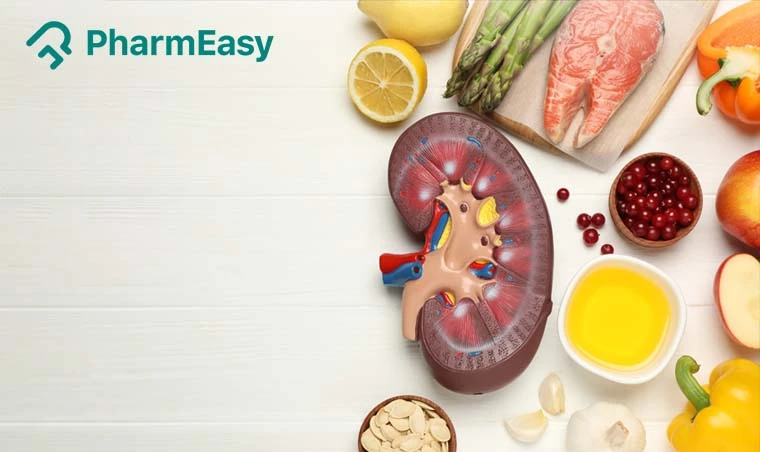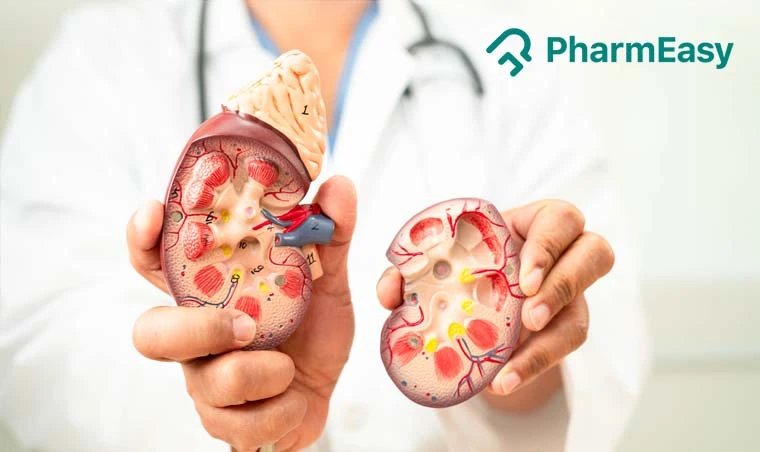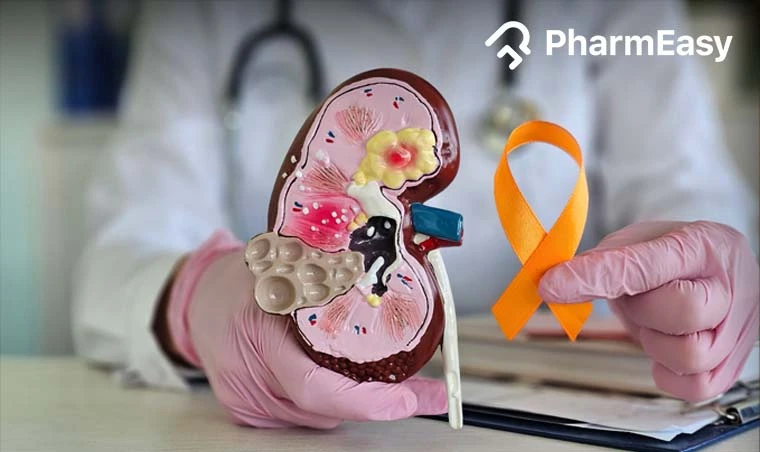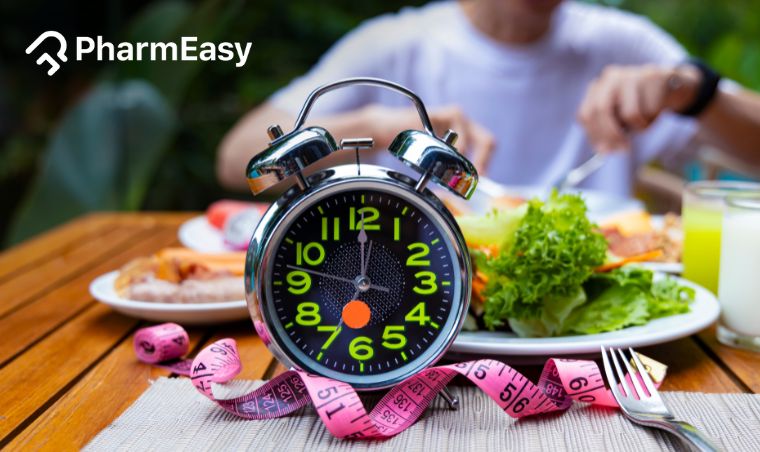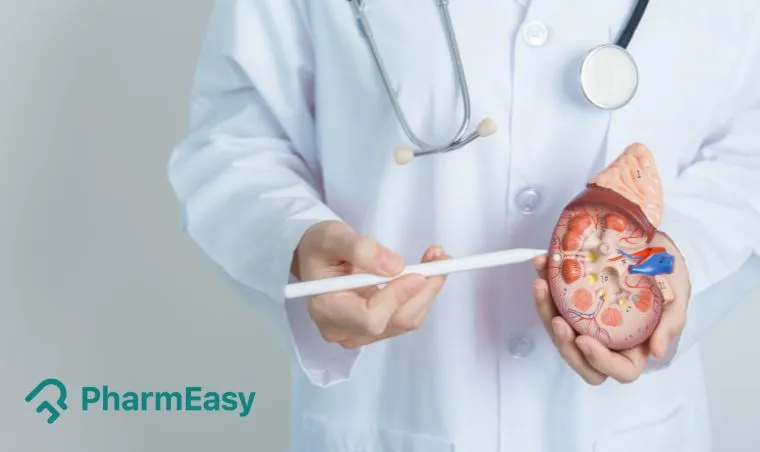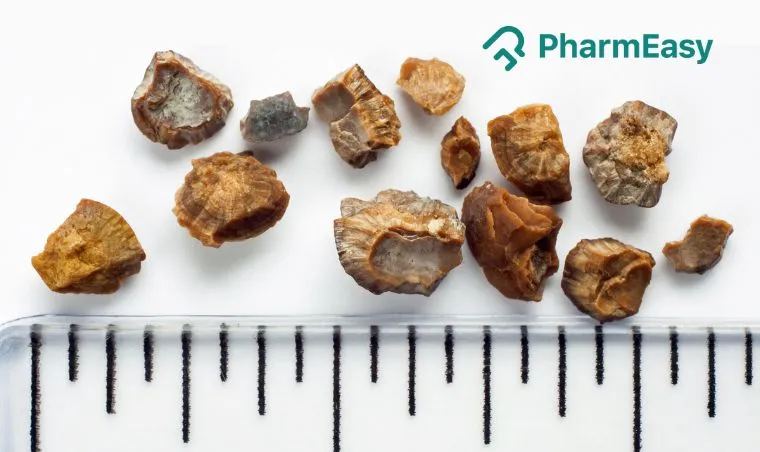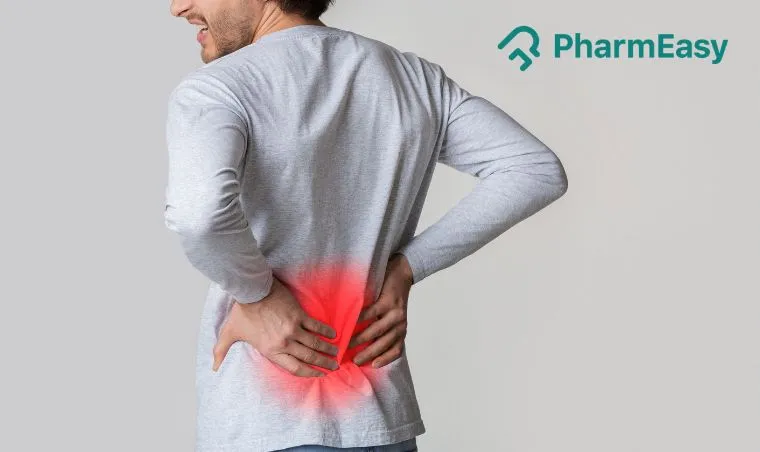Kivicalm 10mg Tablet
Description
Kivicalm 10 mg tablet is primarily used to treat schizophrenia, a condition characterised by symptoms like delirium, hallucinations, and abnormal thinking processes. The active ingredients in Kivical
m 10 mg tablets are trifluoperazine and trihexyphenidyl. Trifluoperazine belongs to the class of typical antipsychotics, while trihexyphenidyl belongs to the anticholinergic group of medicines. The directions for use of Kivicalm 10 mg tablets should be strictly followed. The doctor determines the dose and frequency of administration for best results. It is important to inform the physician of the user’s complete medical history and all medications taken to be checked for any potential interaction issues. Kivicalm 10 mg tablets should not be abruptly stopped as this can lead to withdrawal symptoms like nausea, vomiting, sleeplessness, and fatigue. It is also advised to take the medicine at the same time each day so that a stable level of medication can be maintained in the body. Some common side effects of Kivicalm 10 mg tablets include dry mouth, constipation, menstrual abnormalities, headache, nausea, vomiting, drowsiness, and low blood pressure. Most of these side effects are mild and do not disrupt everyday life. Kivicalm 10 mg tablets are contraindicated in persons with prolactinoma, breast cancer, pheochromocytoma, and diabetes mellitus. It is not intended for use in pregnancy. Kivicalm 10 mg tablets should be prescribed with caution to older adults and those with kidney or liver disease. Kivicalm 10 mg tablets increase the chances of stroke in older adults with dementia. This medicine can cause weight gain and an increase in blood lipid levels. Exercising regularly and maintaining a healthy lifestyle is advised.
Product Summary
| Offer Price | ₹19.42 |
| You Save | ₹7.18 (27% on MRP) |
| Contains | Trifluoperazine(10.0 Mg)+Trihexyphenidyl / Benzhexol Hydrochloride(2.0 Mg) |
| Uses | Schizophrenia |
| Side effects | Nausea, Constipation, Sedation, Weight Gain, Low Blood Pressure, Urine retention, Dizziness |
| Therapy | ANTI-PSYCHOTICS |
Uses
- Kivicalm 10 mg tablets are used to treat schizophrenia.
Contraindications
- Do not take Kivicalm 10 mg tablets or use caution:
- If you had an allergic reaction to this medicine in the past; Kivicalm 10 mg tablets are contraindicated in such cases.
- If you take monoamine oxidase inhibitors (MAOIs) like tranylcypromine and selegiline. The combination of these medicines can cause severe adverse effects like flushing, low blood pressure levels, coma, and death....
- If you are an older adult. Dose modifications may be required.
- If you have preexisting heart diseases. Kivicalm 10 mg tablets should not be prescribed.
- If you have angle-closure glaucoma. Inform your doctor as Kivicalm 10 mg tablets may worsen the condition.
- If you have preexisting liver disease. This medicine is metabolised in the liver, so regular liver function testing should be done.
- If you have any preexisting kidney conditions. This medicine is primarily excreted through urine. Hence, a decrease in the excretion of the medicine can increase its concentration in the body.
- If you need to get a myelogram (X-ray of the spine) done.
- If you need to do vigorous exercise.
- If you have breast cancer or pheochromocytoma. Kivicalm 10 mg tablets should not be prescribed.
- If you have a history of convulsions. Kivicalm 10 mg tablets increase the chances of seizures.
Side effects
- Side effects of Kivicalm 10 mg tablets include:
- Constipation
- Dry mouth
- Weight gain
- Low blood pressure levels
- Involuntary muscle contractions
- Restlessness
- Dizziness
- Urinary retention
- Blurred vision
Precautions and Warnings
Pregnancy
Breast Feeding
Driving
Alcohol
Other General Warnings
- You feel drowsy or lightheaded after taking this medicine. Avoid exercising and exposure to hot weather after taking this medicine.
- You should avoid sun exposure. Use sunscreen and wear protective clothing if you need to go out in the sun.
- You should inform your doctor if you are advised to get a myelogram (X-ray of the spine) done while taking Kivicalm 10 mg tablets.
- You have surgery planned. Inform your surgeon about this medicine.
- You have been exposed to chemical substances like organophosphates.
- You should get your blood cells checked at regular intervals to prevent a serious condition called agranulocytosis.
Mode of Action
How Does It Work?
Directions for Use
- Take this medicine exactly as prescribed by your doctor.
- Do not exceed the recommended dosage.
- If you have any side effects, seek medical help immediately.
- Make sure that the treatment is complete.
- Do not discontinue using this medication without consulting your physician first.
- Keep the medicines in the container with the lid tightly closed.
Interactions
Interactions with other medicines
- Kivicalm 10 mg tablets can interact with many medicines and cause adverse side effects. It is advised to inform the doctor of all medication being taken to be checked for possible interaction issues. The following medicines are known to interact with Kivicalm 10 mg tablets....
- Antiarrhythmic medicines (flecainide) can increase the risk of developing bradycardia, arrhythmia, hypotension, and heart failure.
- Antihypertensive medicines (reserpine, methyldopa, clonidine, and guanfacine) can decrease heart rate and force of contraction if used with Kivicalm 10 mg tablets.
- Insulin can cause hypoglycemia if used with Kivicalm 10 mg tablets.
- Antacids (cimetidine and omeprazole) slow down the absorption of Kivicalm 10 mg tablets.
- Kivicalm 10 mg tablets prolong the action of anti-depolarising muscle relaxants.
- Anticoagulants (warfarin) increase bleeding time if taken with a Kivicalm 10 mg tablet.
- Antidepressants (fluoxetine) cause drowsiness and sedation if used with Kivicalm 10 mg tablets.
- Antipsychotics (haloperidol) can cause dizziness.
- Sedatives and hypnotics (benzodiazepines and barbiturates) can cause extreme drowsiness and decreased respiratory rate.
- Alcohol can cause sleepiness and palpitations.
- Monoamine oxidase inhibitors (MAOIs) (Selegiline) can cause symptoms like palpitations, flushing, convulsions, and coma.
Storage and disposal
Dosage
Overdose
Missed a Dose
Content Details
Dr Tuhina Mishra
MBBS
Dr. Jagruti Jain
MBBS, MD, DNB, General Medicine
Frequently Asked Questions (FAQs)
Q: What should I do when I feel dizzy after taking Kivicalm 10 mg tablets?
Q: Can I stop Kivicalm 10 mg tablets as soon as I feel better?
Q: Can Kivicalm 10 mg tablets cause weight gain?
References
Did you find this medicine information helpful?
Please rate your experience










